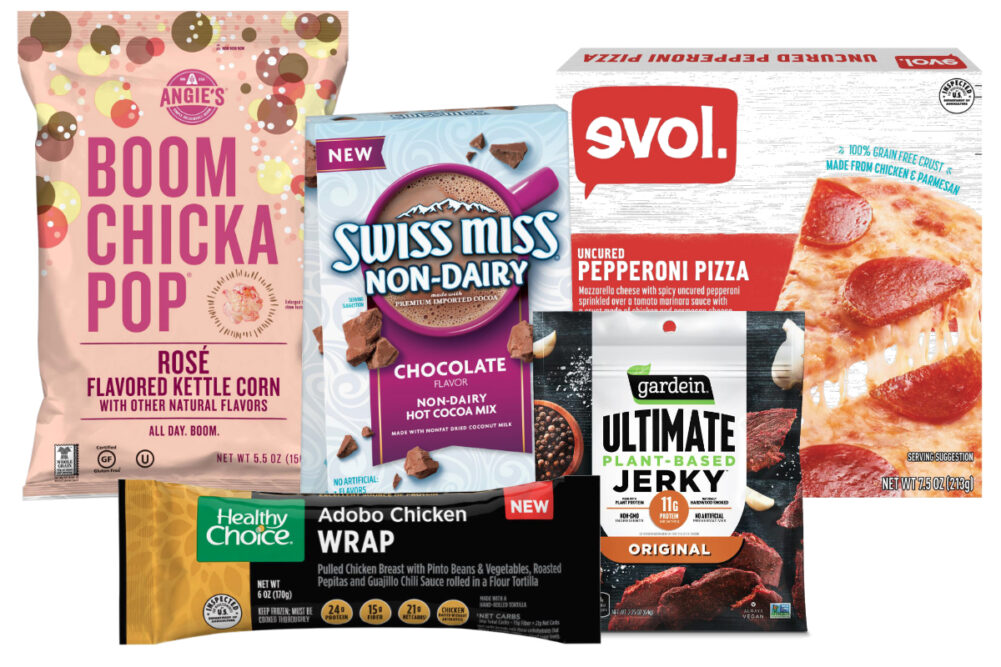CHICAGO — Conagra Brands, Inc.’s US retail business, which accounts for approximately 80% of total company sales, has seen fourth-quarter shipments increase nearly 50% when compared to the same period of the previous year. The demand surge prompted management to raise fiscal 2020 guidance.
“We are now unable to forecast Q4 with specificity, but we can say that we expect to exceed the full year guidance on all sales, profit and cash flow metrics,” said David S. Marberger, chief financial officer, during a March 31 conference call to discuss third-quarter results. “Although this situation remains highly dynamic, we now see upside to the guidance we provided due to the quarter-to-date surge in consumer demand and the related sales and profit impacts.”
The juxtaposition between Conagra Brands’ full-year outlook issued in mid-February and late March is jarring. In February, the company lowered its full-year sales guidance to be flat to 0.5% vs. the previous estimate of 1% to 1.5%. Additionally, adjusted diluted earnings per share from continuing operations were expected to be $2 to $2.07, down from the prior forecast of $2.07 to $2.17.
Weakness in foodservice demand during December pivoted to retail in January and created the headwind that prompted management to reduce the full-year guidance. By late March the situation had reversed.
“Typically, we would be spending our time on this call reaffirming our guidance and discussing the short list of initiatives underway to close out the year,” said Sean M. Connolly, president and chief executive officer. “But this year is unprecedented, and the impact of COVID-19 will be significant.
“With respect to our results, the magnitude of the impact is difficult to predict. What we know to date, the Q4 retail demand surge is significant and spans multiple retail channels, including e-commerce. While our Foodservice segment is facing headwinds, that impact is more than offset by increased demand in our retail segments. Given the depth and breadth of our portfolio, we are well positioned to meet this increased demand for at-home consumption.”
Mr. Connolly said the company is running its plants seven days a week and the priority is to produce the maximum amount of food possible.
“Until we're on the other side of this pandemic, sales growth is likely to remain elevated because you've got most of the food-away-from-home volume moving to food at home,” he said. “We've got, obviously, lots of experience with how pantries and warehouses get filled by customers and consumers around situations like hurricanes. And you always see big volumes move into warehouses at the customer level and into pantries and freezers and refrigerators at the consumer level. But how long the pull remains, in this particular case, is directly a function of how long does this thing last, and how long are people sheltering in place?”
Conagra Brands had an aggressive innovation strategy heading into fiscal 2021. Mr. Connolly said when it comes to store resets and new product introductions, the situation is “fluid” and will be considered on a customer by customer basis.
“Most customers are just trying to keep products on the shelf right now,” he said. “Some customers, big ones, have said to us that they want to continue with the shelf set timing. Others had said, we're going to push that back a bit just so we can ensure that we don't have any complexity in anything going on at the store shelves that's going to be a distraction from keeping products in stock. So, we are trying to respond to all of our customers' requests so we can do whatever they want.”
Analysts participating in the call tried to get Mr. Connolly to predict what his business will be like beyond the fourth quarter and into fiscal 2021.
“As you might imagine, if it's business as usual, it's kind of one set of assumptions,” he said. “If this thing were to continue, if it were to come back in the fall, as I read this morning, that's a whole other ball game. So, it's an almost impossible thing to predict.
“I think we're in one of these times where we will endeavor to be incredibly transparent with what we're seeing, what we're thinking so that we can provide the best perspective we can provide while fully acknowledging that it's awfully – it's (an) impossible task for us to be precise right now.”
Third-quarter net income for the period ended Feb. 23 totaled $204.4 million, equal to 42¢ per share on the common stock, a 16% decline when compared to the same period of the previous year when the company earned $242 million, equal to 50¢ per share.
Sales for the quarter fell 6% to $2.6 billion.
Items affecting sales included divestiture of several businesses, including the Wesson business, the direct-store delivery snacks operations, Gelit, Lender’s Bagels and the exit of the private label peanut butter business.





